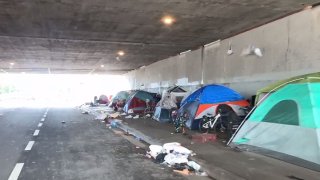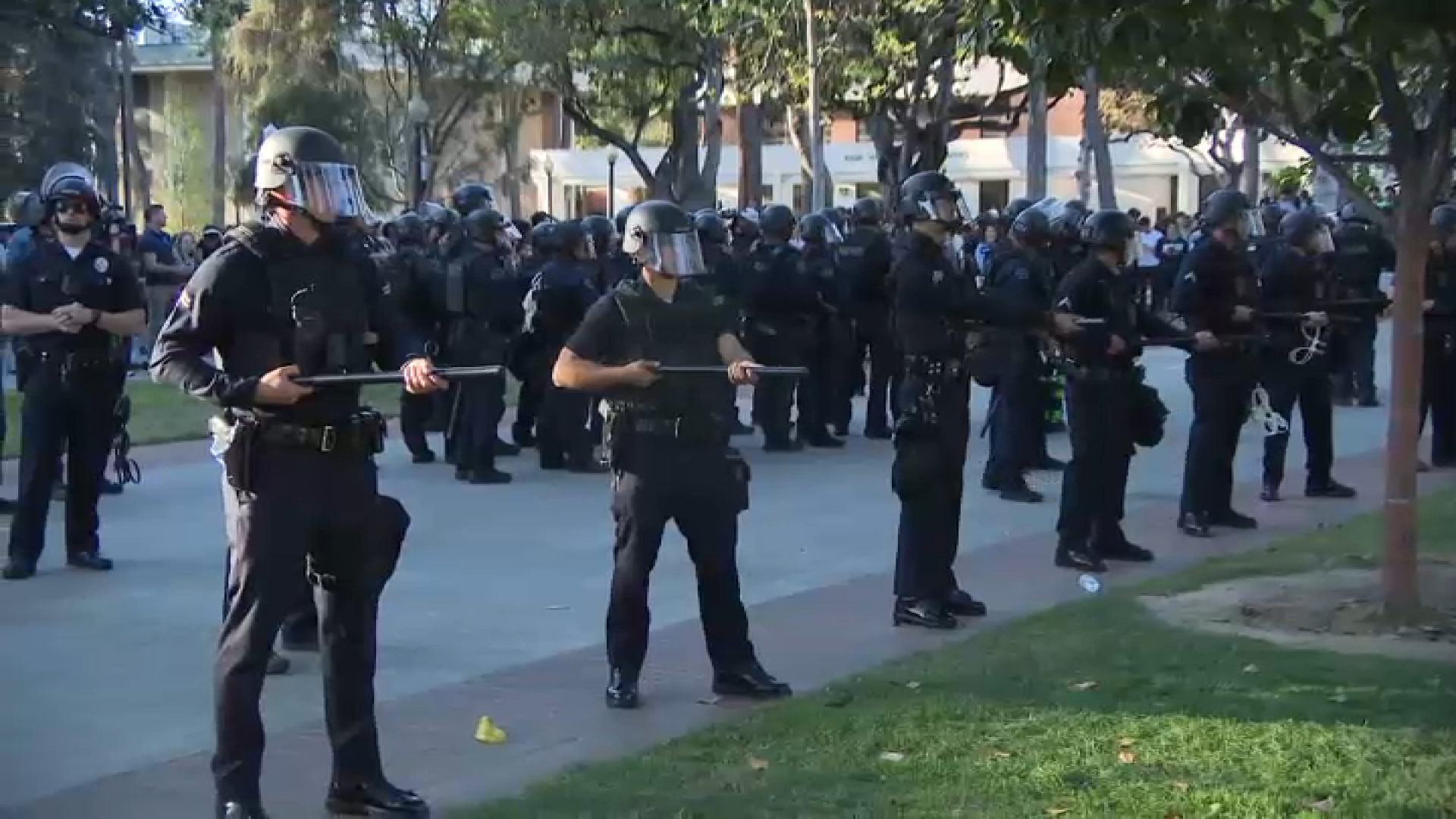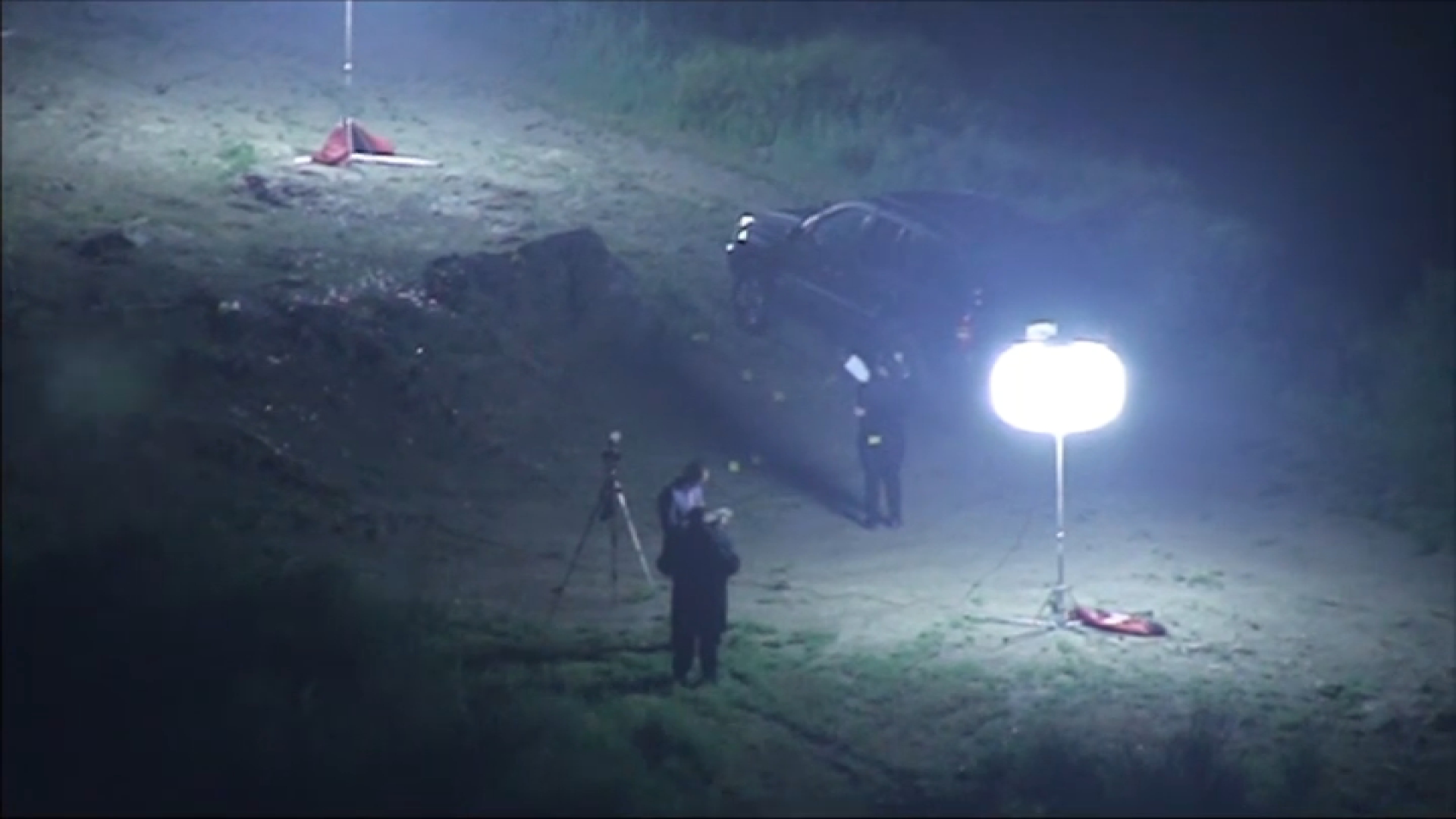
The federal judge who ordered that homeless encampments adjacent to Los Angeles freeways be immediately cleared in light of coronavirus threats directed city and county officials Friday to agree on a plan to disperse the camps by September.
U.S. District Judge David O. Carter cited health and safety concerns on May 15 for ordering the removal and relocation of up to 7,000 indigent people living in ragtag camps beneath and around the freeway system.
After city and county attorneys urged Carter to drop or delay the order that was supposed to go into effect Friday, the judge indicated he would oversee the clearance in stages, starting with a June 12 status report.
"At minimum, this report shall detail a plan for establishing shelter and clearing overpasses, underpasses and ramps in each council district or supervisorial district no later than Sept. 1," Carter wrote in the new order.
"The court reserves the authority to advance the deadline of Sept. 1 in the event that the interim status reports do not demonstrate satisfactory progress towards compliance with the preliminary injunction. Furthermore, the court shall conduct additional hearings to monitor compliance as the court finds necessary."
In his removal order, Carter suggested that if people did not willingly leave the encampments, law enforcement might enforce anti-camping laws to ensure they are moved to safer locations.
The unusual ruling came as part of settlement talks in a lawsuit filed in March by the L.A. Alliance for Human Rights, a coalition of Skid Rowarea business owners, formerly homeless and disabled city dwellers, which accuses the city and county of Los Angeles of not doing enough to address the homeless problem downtown, especially in light of the COVID-19 pandemic.
Local
Get Los Angeles's latest local news on crime, entertainment, weather, schools, COVID, cost of living and more. Here's your go-to source for today's LA news.
The plaintiffs filed papers Thursday commending the judge's order and pushing for it to quickly go forward.
"The court takes an important and compassionate step to protect a significant portion of homeless persons and the community from likely harm by issuing this preliminary injunction, and its analysis and conclusion is legally correct," according to L.A. Alliance attorney Elizabeth A. Mitchell.
However, attorneys for the city and county maintained that the injunction, as it stood, was not a workable solution to the problem.
In a 30-page filing, the county said the relocation order "would interfere with complex matters of state and local policy" and "does not cite authority for its extraordinary judicial action."
A federal court hearing was scrapped this week after city and county attorneys could not agree on who would fund an alternative plan expected to cost up to $130 million to house those who were going to be displaced.
"In particular, the city's ability to create new shelter is contingent on county funding, the appropriate levels of necessary support, and operating services for that shelter, to which county has yet to agree," city lawyers wrote.
In another argument against the order, the county suggested that Carter is overstepping his bounds.
The injunction, lawyers wrote, "is procedurally defective. It was issued … without notice or an opportunity to conduct an evidentiary hearing to assess, weigh, and explore the facts and to balance the risks and potential conflicts with existing programs."
"As the court knows, there are considerable state, federal and local efforts currently underway, not only to combat homelessness, but also to reduce the spread of COVID-19 -- and those efforts require extensive coordination,"
according to the filing. "Without detailed fact finding, evidence and factual exploration, any injunction at this point is too blunt of a tool to actually accomplish the goals of the court and the county."



